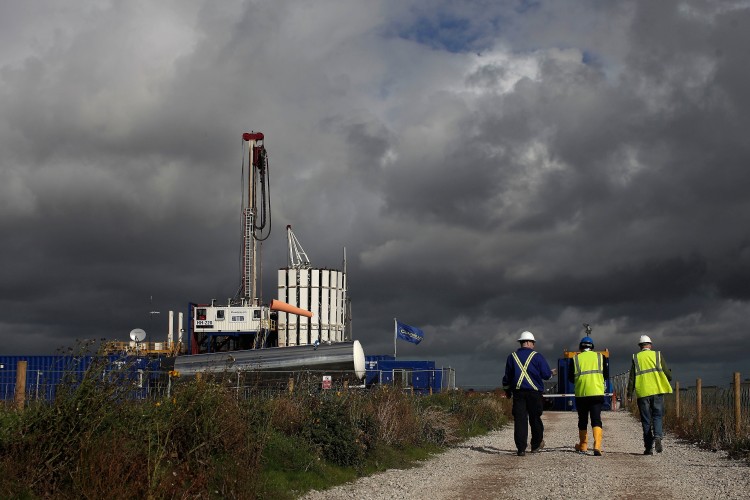David Cameron’s government has snuck a new definition of fracking onto the statute books – allowing hydraulic fracturing for shale gas to take place outside the new regulatory regime.
Cuadrilla’s exploratory fracking, which caused two earthquakes in 2011 at Preese Hall in Lancashire, would not be classified as hydraulic fracturing under the new official definition set out in the controversial Infrastructure Act.
Doug Parr, chief scientist at Greenpeace UK said: “The shift in fracking definition illustrates again how desperate Government is to get fracking moving despite the problems and opposition.”
DeSmog UK is the first to report on how the government appears to have rendered its own regulation of fracking useless, as the late changes made to the Infastructure Bill have gone unnoticed.
Under the new Infrastructure Act, shale gas exploration and extraction must involve more than a total 10,000 cubic metres of fluid in order to be defined as hydraulic fracturing.
Last-Minute Addition
Parr added: “Having failed to win the argument at public level and with major oil companies saying it will be no big deal, Government is left conjuring up new definitions to help steamroller unwanted, risky and irresponsible fossil fuel exploitation onto the British countryside.”
Definition of fracking. Screengrab from the Infrastructure Act
Liberal Democrat Baroness Kramer introduced this last-minute addition to the Infrastructure Act under Section 50 during the final stages of debate last week. Prior versions of the Infrastructure Bill did not include any such definition.
It means that any fracking that uses less than the volume defined under the act would not be subject to the few safeguards outlined in the legislation. This includes restricting fracking within protected groundwater source areas.
It applies to hydraulic fracturing associated with “the use of the relevant well to search or bore for or get petroleum”.
Bypass Legal Controls
Nick Clack, a senior energy campaigner at Campaign to Protect Rural England (CPRE), said: “We are concerned that the definition of fracking introduced by the Government, based on the volume of fracking fluid, could enable companies to bypass the limited legal controls that have been retained [in the Act].”
According to a study by the Department of Energy and Climate Change (DECC) fracking requires an estimated 10,000-25,000 cubic metres of water per well.
However, there is currently only one example of a shale well being fracked in the UK with which to compare these figures: Preese Hall.
Drilling operations here used a total 8,400 cubic metres of water – 1,600 cubic metres less than the government’s required fluid volume for hydraulic fracturing. Note: fracking fluid typically consists of 99 percent water.
According to the Cuadrilla website each drill site at Preese Hall used approximately 900 cubic metres of water. This too falls outside the government’s definition, which states that more than 1,000 cubic metres of fluid must be used at each stage of hydraulic fracturing.
Watered-Down Safeguards
Caroline Lucas, the Green party MP who sought a moratorium on fracking, said in the House of Lords that defining fracking based on the volume of fluid used “risks allowing significant fracking with less than the defined volume limit to go ahead, without even the safeguards that are before us today”.
Lancashire fracking. Photo via Matthew Lloyd / Getty Images Epoch Times via Creative Commons
The CPRE has rejected the weak safety standards outlined under the act, saying it “calls into question the Government’s commitment to so-called world class fracking regulation”.
Further strengthening of fracking’s legal safeguards under the act is necessary to ensure “robust protection” of the countryside argues CPRE. What’s more, it is likely that operating practices will change over time since fracking is a new industry in Britain.
However, because hydraulic fracturing has now been defined according to a set volume of fluid, if the average amount of water used changes significantly once fracking is at scale, it will be difficult to update the definition.
Cuadrilla is currently seeking planning permission for up to four wells at both Preston New Road and Roseacre Wood in Lancashire. A decision on these applications has been deferred until April by the Lancashire County Council.
If approved, this would see hundreds of fracks and provide a more accurate picture of the amount of water required.
Subscribe to our newsletter
Stay up to date with DeSmog news and alerts









